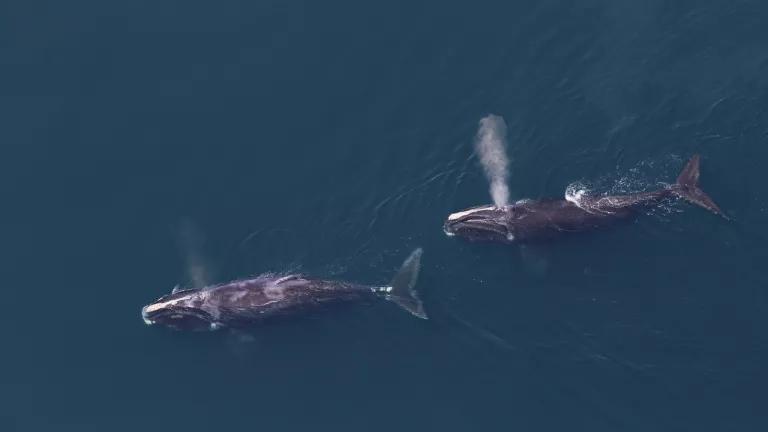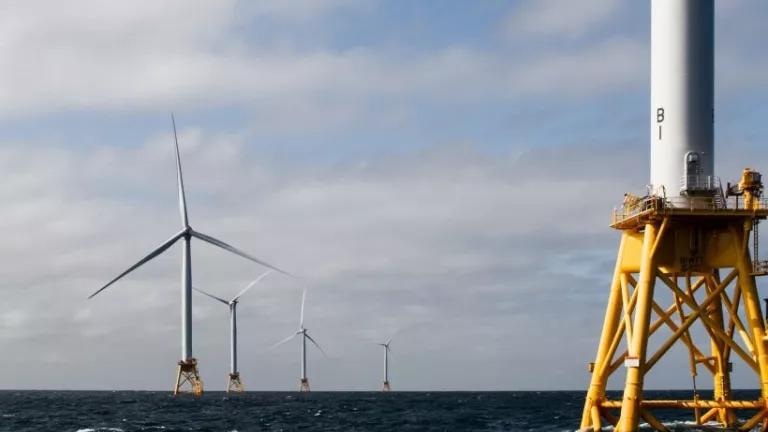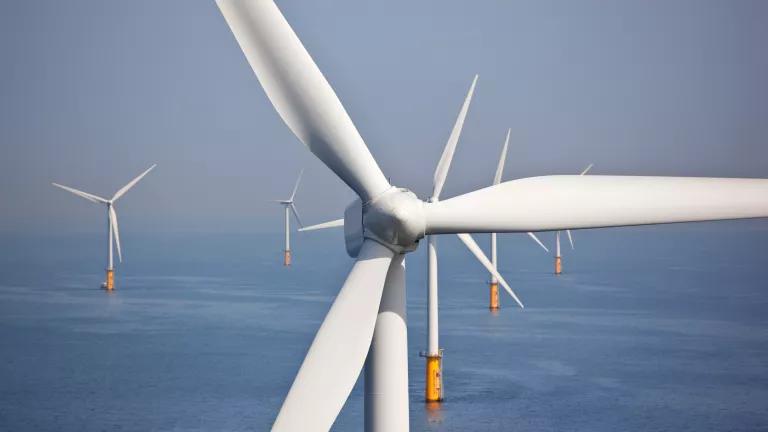Not in Our Atlantic: Our Ocean Economy Is Too Important

It’s been an action-packed two weeks since the Trump administration released its polluters-first program to drill for oil and gas offshore the United States. The draft plan is an oil industry dream, an extreme first draft proposing to expose the nation’s public oceans to the most lease sales by any administration—ever. Virtually all federal waters off all coastal states—the entire East Coast, Gulf Coast, West Coast and Alaska—are now at risk.

Then Interior Secretary Zinke threw a major curveball last week with a tweet that implied Florida was removed from the mix because the state “is unique and its coasts are heavily reliant on tourism as an economic driver.”
This move injected chaos into the existing uproar about the plan’s reach, with new questions like “Can he do that?” and “What does this mean – is Florida really out of the plan?” The tweet opened the floodgates with pointed requests from local communities, Governors, and legislators asking “Where do we sign up for a waiver?” And as of today, Walter Cruickshank, the Acting Director of the bureau that issued the draft plan, said Florida is not off the table for offshore drilling activities.
As Zinke’s calendar fills up with elected officials of all stripes coming to make the case for their state’s exclusion, here are a few points for us all to keep in mind:
- Assume your state – even if you live in Florida – is still at risk until it’s formally out in the next version of the draft plan. Comments on this first cut of the plan are due by March 9, and a new proposal will come after comments are considered. Despite what your Governor is asking for, it’s critical to attend the public meetings, comment on the plan, and ask your elected officials to speak up against offshore drilling.
- An oil spill won’t care if your state is “exempt.” Oil spills can travel vast distances and spills beyond one state’s boundaries can spoil beaches and the tourism and fisheries industries just as much as a spill that you can see from the shoreline. For example, oil from BP’s 2010 Deepwater Horizon rig explosion coated shorelines and waters from Texas to Florida, impacting the health of fisheries, birds, and endangered whales for generations to come. An equivalent disaster in the Atlantic could coat beaches from Savannah to Boston. Even before drilling starts, private companies prospect for oil and gas by blasting the ocean with seismic airguns – producing massive, explosive noise essentially around the clock for years. These blasts have been proven to cause massive disruption to marine life, from whales to zooplankton, and kill or injure many fish and shellfish species, including those of commercial importance like squid, lobster, and scallops. And the blasting sound can be heard underwater 2,000 miles away or more from their source – further than the distance from Florida to Maine.
The fact is: As attractive as it may be to think “no drilling off my state,” it’s all connected and important to take a broader view. And Florida isn’t the only state along the Atlantic seaboard with “coasts … heavily reliant on tourism as an economic driver.”
We just posted a fact sheet that explains how opening America’s Atlantic to oil and gas exploration and development threatens vitally important segments of the U.S. economy and the livelihoods of many of the 70 million Americans who live along the East Coast. From Maine’s vibrant harbors to Florida’s beautiful beaches, coastal communities rely on the Atlantic Ocean for food, jobs, and recreation.
In 2014, the U.S. Atlantic Ocean economy contributed roughly $92 billion to the country’s gross domestic product (GDP). More than 60 percent of that came from tourism, recreation, and the fishing and seafood industries. These businesses, which together employ more than 1 million people, largely depend on a clean ocean, clean beaches, and abundant fish and wildlife. More than 140 cities and towns along the coast have passed resolutions opposing offshore drilling and/or seismic testing for oil and gas, wanting to keep their communities safe from natural and economic disaster. Business interests have also expressed their opposition to drilling.
The upshot is that with this tone-deaf offshore drilling plan, the Administration has ignored a groundswell of opposition. States are taking a hard look and representatives from both sides of the political aisle are opting to stand alongside the small businesses and communities that rely on clean and healthy oceans and beaches and turn away from dirty, dangerous offshore oil and gas drilling.
Let’s hope that Secretary Zinke follows through on his tweet that “local voices matter” and that instead of auctioning these public waters off to the highest bidder, he takes into account the opposition of all of us who live and vacation along the Atlantic and want to enjoy them oil-free.




